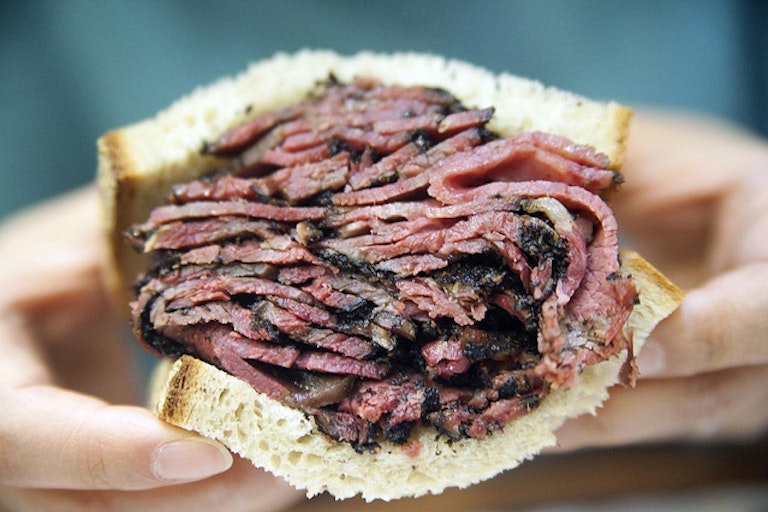Each year around 14,400 Australians are diagnosed with bowel (colon and rectal) cancer. It’s the second most common newly diagnosed cancer after lung cancer and claims around 3,980 lives a year.
The good news is that bowel cancer has a high cure rate if detected early.
And there is convincing evidence that you can reduce your risk of it by regularly eating foods that are high in dietary fibre, such as wholegrains, legumes, pulses, high fibre cereals, vegetables and fruit. In fact, for every ten grams of fibre you consume per day, your risk reduces by 10%.
Being physically active for at least 30 minutes a day also decreases your risk of bowel cancer.
But the other side of the risk equation is bad news for those who love a good deli meat: the regular consumption of processed meat increases your chances of getting bowel cancer.
What does the evidence say?
Red meat contains important nutrients such as protein, iron, zinc, vitamins B12, thiamin, riboflavin and niacin. But there is convincing evidence that eating more than 500 grams of cooked meat per week is risky.
The latest World Cancer Research Fund meta-analysis of 12 separate studies indicates that for every 100 gram increase in red meat a day there is a 17% increase in bowel cancer risk.
For processed meat, there appears to be no completely safe level of intake, with a meta-analysis of 13 studies finding an 18% increase in bowel cancer risk for every 50-gram increase in daily intake.
How much do we eat?
Ham and bacon are the most commonly consumed processed meats in Australia, with almost half (44%) of the population eating them once a week or more often. Other favourites include pastrami, salami, corned beef, chorizo, devon, fritz, luncheon meats, some sausages, hot dogs, cabanossi, kabana, and bratwursts.
The last National Nutrition Survey found that among adults who ate processed meat on the day of the survey, men and women ate around 40 grams and 26 grams respectively. For sausages, frankfurts and saveloys, this rose to 110 and 76 grams.

Processed meat is preserved by smoking, curing, salting or the addition of preservatives including nitrite, nitrates, phosphate, glutamate or ascorbic acid.
In Australia, mince meat has no additives and so is defined as fresh meat. Minced meats or hamburger patties are only considered processed if they are chemically preserved, which means you need to check the methods used to process these products if you eat them regularly.
What components cause cancer?
Naturally occurring food components, cooking techniques and additives in red and processed meat all impact on the mechanisms that lead to development of cancer.
Nitrates and nitrites occur naturally in plant foods as part of the nitrogen cycle between air, land and water environments. These chemicals are added to cured meats to help kill bacteria and are also produced in meat during the curing process or in the stomach during digestion of meat. Both processes play a role in the production of N-nitroso compounds that contribute to cancer risk.
It’s important to note, however, that the nitrate found in vegetables accounts for the majority of dietary consumption of the chemical. Recent reviews confirm some health benefits from naturally occurring food sources and say we need to re-examine the link between nitrate and cancer.
The haem iron in meat also promotes the formation of N-nitroso compounds. When meats are cooked at high temperatures, compounds called heterocyclic amines and polycyclic aromatic hydrocarbons are produced and also increase cancer risk.
It’s not just about the meat
Other important risk factors for bowel cancer include age (especially being over 50 years), having a family or personal history of the disease, specific genetic conditions and having inflammatory bowel disease for more than eight to ten years.
Definitive steps you can take to reduce your risk of bowel cancer include knowing your family history and participating the national bowel cancer screening program, which invites Australians who turn 50, 55, 60 and 65 to be screened.
But a simple step to reduce your risk is to change the way you think about meat: keep serve sizes of cooked red meat small – 80 grams of cooked meat up to six times a week with some meat free days. And save processed meats for special occasions.

